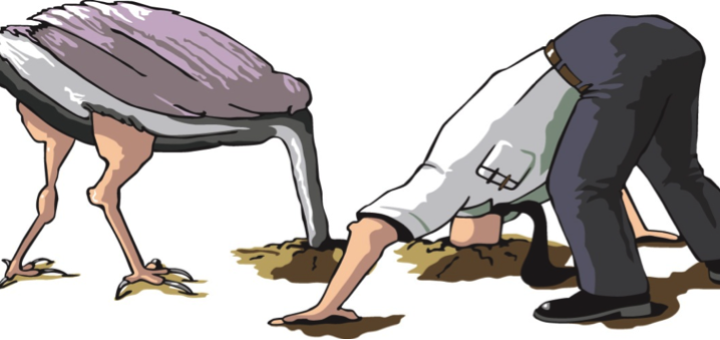When Funny is Not Funny…
You in your small corner and I in Mine
Refugees: the current issues – is there a solution?
There is another story too, that is not being talked about much and that is one that needs to be brought to Europe’s attention. In Europe, UK, Germany, and Italy particularly, there is a need for young workers who pay tax. The reason being that in the UK and other European countries the indigenous populations are getting older. Most of us have things like state pensions, paid from taxes. When these were originally introduced with a male retirement age of 65 and female retirement age of 60, life expectancy was between 68 and 69, very different to today predictions. The current life expectancy in the UK is heading towards 100 years. Who is going to pay for all those retired people? Whose taxes will fund it? We need the refugees’ help to do that. Politicians don’t have very much to say about this.
There is a lot of nonsense being spread around too, that the refugees are just economic migrants. Really? The millions from Syria are just after better jobs are they? I don’t think so!
We also talk about how many are coming to Europe, but in real terms it is only a small percentage of those displaced. In fact, in 2014 the UK took in 31,945 refugees compared with, say, Turkey’s 1. 8 million, or the 600,00 in Jordan. Tiny Lebanon, with a population of just 4 million of its own people, took in 1 million refugees. We need to be talking about the millions in places like Jordan, the overwhelming number in Lebanon and the massive camps in Turkey. Some politicians tell us, “We are doing our fair share; we are taking a big slice of the cake.” Are we?
We also need to be asking the questions as to why the rich countries like Qatar, Kuwait, Saudi Arabia etc., at the moment seem to have no refugees from the war areas of Syria, yet they speak the same language.
Note also that in the Middle East those calling themselves Muslims have killed more people calling themselves Muslims than any other group has.
I note that a friend of mine in Poland has come under quite a bit of flak for persuading the government there to give refugee status to people from these areas that have some kind of Christian background, that we should just take all comers or none. Well, I think we should, as countries, be taking those in need, but we should note that in many areas it is the minority groups like Christians and the Yazidis who have come under the most pressure. Many have even been thrown overboard and drowned from the boats that they were escaping on, by others who did not like their Christianity. Many Christian groups also saying that even in the refugee camps the discrimination against them is too hard to bear.
I recently wrote to the UK prime minister with my suggestion for dealing with the problem. Sure, my solution would not deal with the short term issues; for that we have take in refugees. However, these problems are not going away any time soon. The prime minister’s answer to me and others is that we have to deal with the source. Maybe, but who is going to do that, and in the meantime, what do we do?
My mad suggestion is that we lease land for 99 years and start a new big city; like a new Hong Kong. We put it under the laws and administration of a country like the UK. We use aid budget to fund jobs in the new land, creating new housing, roads, schools, hospitals and general infrastructure, charging a levy to the EU for asylum seekers that they did not take. The country setting it up has first bite of infrastructure contracts, thus benefiting its GDP. The new occupants are given passports, possibly stamped and not allowed to work or receive benefits in Europe, a bit like the stamp on Channel Island passports, who of course hold UK passports. Mad? Of course it is, but we need a mad answer to such a mad situation. I am glad as I watch the global response to such madness, that there are other mad people out there that think this is a possibility. Recently an Egyptian multi-millionaire offered to buy an island to do just what I am suggesting. Another rich philanthropist in the USA also wants to buy an island, and then in the UK Lord David Alton recently put the whole idea to the British House of Lords. (
http://davidalton.net/2015/07/10/2015-the-year-of-the-refugees-just-put-yourself-in-their-shoes-full-house-of-lords-debate-and-government-response-and-a-reply-from-a-north-korean-refugee/)I started by saying I was privileged to have been able to put the problem to a UN audience recently, but talking is not enough. We have to do something. I am glad that the pressure being put on the government by the ordinary person is having some effect, and note that the UK will now take 20,000 refugees. Even Iceland has offered places for 10,000. In terms of the pressure being put on governments by their populace to do more, at a recent march to put on the pressure in London, I was amused by some of posters. One youngster carried one that said, “A refugee can come and stay at my house and play mine craft.” Though I thought the best was one that said, “We need to be more German,” especially as the UK had just agreed to take 20,000 people over five years on the day that Germany took in 40,000.
Fences on Cliff Tops
FENCE ON CLIFF TOPS
POWER
Charles Finny on Atheism
Charles Finny on Atheism Difficulty: Another difficulty of Atheism is that it is fundamentally inconsistent with itself. To the doctrine that God created the universe out of nothing, Atheists object, “ex nihilo nihil fit.” But in accounting for th…
Charles Finney on Atheism
Charles Finny on Atheism Difficulty: Another difficulty of Atheism is that it is fundamentally inconsistent with itself. To the doctrine that God created the universe out of nothing, Atheists object, “ex nihilo nihil fit.” But in accounting for th…
Upstream Issues
- · 2010 64,470
- · 2011 65,500
- · 2012 67,070
- · 2013 68,060
- · 2014 68,840





